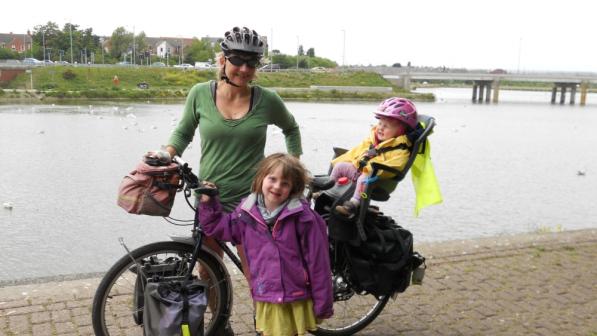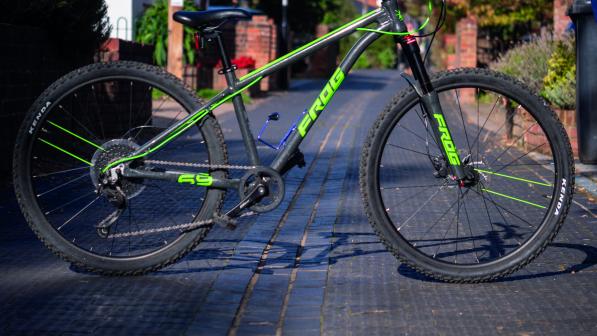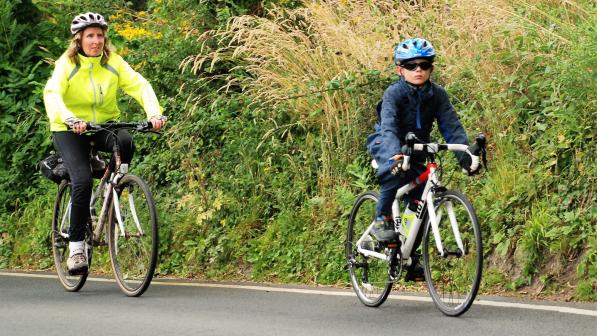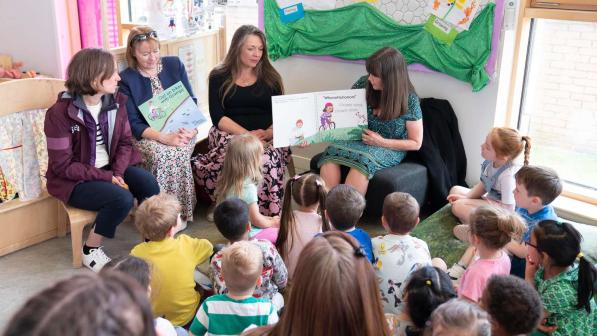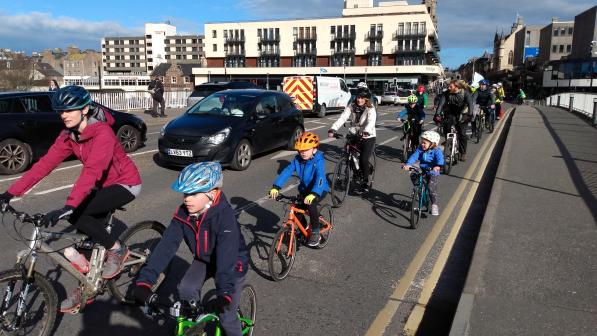New research shows multiple benefits for parents and carers when their children cycle

The research, which was commissioned by Transport Scotland, is believed to be the first of its kind in the world on this topic.
It shows that having children that cycle helps families juggle activities and time pressures, creates quality time together and saves money, among other benefits.
Parents reported that when children cycle independently it saves time and reduces stress, both on the school run and for journeys after school, on weekends and during holidays.
It also helped children and families to access more non-school activities and gave parents fewer pressures when working, which particularly benefited parents of multiple children and single parent households.
One parent stated that: "there might be more than one child that needs to go somewhere, or I need to go somewhere. So it’s nice that they're able to do things independently of me [by cycling]."
Cycling is helping families to juggle finances, relieves time pressures on parents and carers and it gives children and young people access to do more
Corra Boushel, Cycling UK's head of monitoring and evaluation
Cycling – together or independently – saved money on fuel and car expenses, bus fares and as an alternative to more expensive days out. Parents had a range of reasons to reduce car use, including avoiding traffic and reducing the number of cars at school gates as well as environmental and financial motivations.
Parents enjoyed spending quality time with their children cycling together as a family. Cycling together could be inclusive for different ages and abilities within the family, including disabilities, with mental and physical health benefits for the parents as well as children.
The research also found that parents thought about the benefits cycling would bring their child both in the present and for the child’s future. These included improving the child’s independence, health, wellbeing, connection to nature and reducing screen time. As one parent put it, “You don’t need a password to operate your bike.”
Parents perceived cycling as a life skill that would enable transport, improved opportunities and freedom in adulthood.
Safety was the biggest barrier to children cycling independently, with parents expressing concerns such as dangerous car driving, traffic in rural areas, lack of cycling infrastructure and traffic at the school gate.
Other barriers were reported including children not having the required cycling skills, a lack of school support preventing children cycling to school and limited or varying motivation from children to cycle.
The qualitative research took the form of 14 in-depth interviews with parents in locations across Scotland, all of whom had children that cycled.
Corra Boushel, head of monitoring and evaluation at Cycling UK, said:
“This is really exciting research. We know the health benefits to children that come from cycling, but understanding how their cycling has a ripple effect for the whole family is really powerful. Cycling is helping families to juggle finances, relieves time pressures on parents and carers and it gives children and young people access to do more.
“This research has helped to broaden our understanding of how children and families use cycling. Yes, it's definitely a fun leisure activity and sometimes a way to get to school, but young people are also using their bikes to get around, to visit friends, go to activities and see family.
"We shouldn’t be surprised – it’s exactly what adults do as well – but these journeys aren’t usually captured in national data collection or in our collective imagination when we think about allocating resources.”
